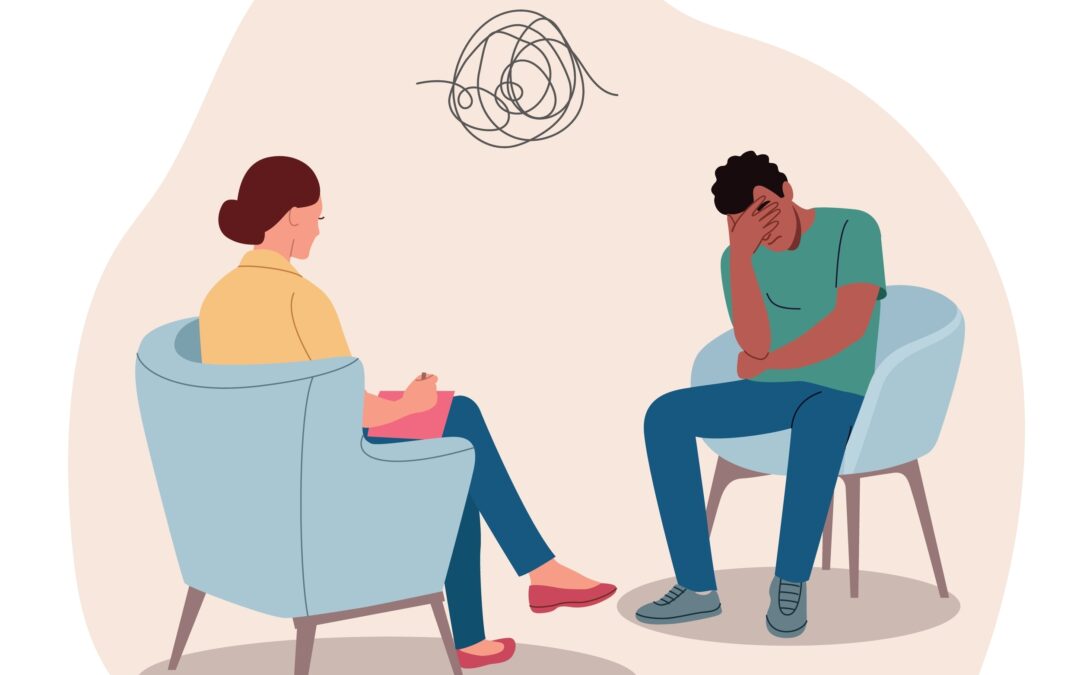Culture isn’t just part of the story. It is the story.
In therapy, people talk about their anxiety, grief, relationships, burnout, trauma, and identity. But underneath all these experiences is something that often goes unnamed—culture.
Culture shows up in the choices we make, the things we fear, the roles we play, the guilt we carry, and the way we make sense of suffering. And when clients sit across from us in therapy—sometimes for the very first time—they begin to name the invisible forces that have shaped them for years.
What we hear behind closed doors isn’t just about symptoms.
It’s about survival, adaptation, legacy, and belonging.
In this post, we’re unpacking culture in therapy—not as a buzzword or checklist, but as a living, breathing part of our clients’ lives.
“I feel caught between two worlds.”
— The identity tug-of-war
One of the most common cultural tensions we hear comes from clients navigating multiple
cultural identities. This often shows up for:
● First- and second-generation immigrants
● People in interracial or interfaith relationships
● Children of diaspora
● Bicultural or multicultural individuals
These clients may feel pulled between the values of their upbringing and those of the dominant culture around them. They say things like:
- “I feel like a different person at home than I do at work.”
- “I’ve spent my whole life trying to make everyone else comfortable.”
- “I’m constantly code-switching. I don’t even know what ‘authentic’ means anymore.”
What clients are really expressing is a deep, existential question:
Can I be fully myself—without betraying where I come from, or where I want to go?
In therapy, we explore this tension not as a problem to be solved, but as a rich, complicated part of identity. For many clients, just saying it out loud can be liberating:
“I’ve never told anyone this before.”
“We didn’t talk about feelings growing up.”
— Emotional expression across cultures
In many families, emotional restraint is seen as a virtue. Vulnerability is viewed as weakness.
Mental health is either unspoken—or stigmatized. We hear clients say:
- “I was taught to be strong, not sensitive.”
- “My parents went through so much more than I did. Who am I to complain?”
- “They told me to pray, not to go to therapy.”
Therapists understand that these beliefs often have roots in survival. When communities have endured war, displacement, colonization, systemic racism, or poverty, emotional expression isn’t always safe. Strength becomes silence. Privacy becomes protection.
But silence can become a burden, too. Generational trauma, unspoken grief, and emotional repression can lead to anxiety, depression, and relational disconnection.
In therapy, we gently help clients trace these cultural patterns and ask:
● What were you taught about emotions?
● What was modeled for you?
● What would it look like to feel things without shame?
Healing doesn’t mean abandoning one’s culture—it means making space for both honour and honesty.
“I don’t want to disappoint my family.”
— Navigating cultural expectations and guilt
We often hear clients wrestling with expectations that go far beyond personal preference. These might include:
● Academic or career achievement
● Marriage and childbearing timelines
● Gender roles and family duties
● Religious or spiritual conformity
● Loyalty to tradition or elders
Some clients are living lives that feel more “obligated” than chosen. They may say:
- “Everyone’s depending on me.”
- “I’m supposed to be the ‘good one.’”
- “I feel selfish for even thinking about doing something different.”
These expectations can feel sacred and suffocating at the same time. And when clients begin to challenge them—by setting boundaries, delaying marriage, leaving religious communities, or choosing a different path—they often carry deep guilt, grief, and fear of cultural betrayal.
Therapy becomes a place to unpack those stories with compassion. Not to reject culture, but to redefine what it means to be loyal, loving, and free—on their own terms.

“I can’t find a therapist who gets it.”
— When culture is misunderstood in mental health care
Another reality we hear from many clients is the experience of feeling unseen—or misunderstood—by therapists who don’t reflect or relate to their cultural background. Clients share stories like:
- “I spent half the session explaining my culture.”
- “My last therapist told me to just cut off my family. That’s not an option.”
- “They didn’t understand why I couldn’t just say no.”
Cultural competence isn’t about knowing every tradition, language, or practice. It’s about humility, curiosity, and safety. It’s about acknowledging power dynamics, histories of marginalization, and the ways therapy itself can feel inaccessible or foreign to some communities.
At our clinic, we prioritize therapists who are not only trained in cultural responsiveness, but who honour lived experience. We don’t expect clients to educate us—we listen, we ask, we learn, while continually unpacking culture in therapy.
What do therapists really hear behind closed doors?
- We hear the pain of not being seen.
- We hear the courage it takes to ask for help.
- We hear stories shaped by culture, class, migration, trauma, and resilience.
- We hear people trying to belong—to themselves, to their families, and to a world that doesn’t always make room for both.
And we hear this, again and again:
- “This is the first place I’ve felt like I didn’t have to explain everything.”
- That’s the power of culturally informed therapy. It doesn’t erase the difference. It holds it—with care, with nuance, and with respect.
If this resonates with you, you are not alone.
At Evergreen Therapeutics, we believe that therapy should reflect the richness of the people who seek it. Our team includes therapists from diverse cultural backgrounds, and we approach every session with sensitivity, awareness, and a commitment to seeing the whole person—not just the symptom.
You don’t have to translate yourself to be understood here.
Whether you’re seeking support for anxiety, identity, relationships, or trauma—culture matters. And we’re here to meet you where you are.
If you are interested in speaking with a professional and you reside in Ontario, Canada, please do not hesitate to contact us at admin@evergreentherapeutics.ca. We offer a team of psychotherapists who treat a variety of mental health concerns and work with individuals, couples, and families. Visit our website www.evergreentherapeutics.ca for more information.



